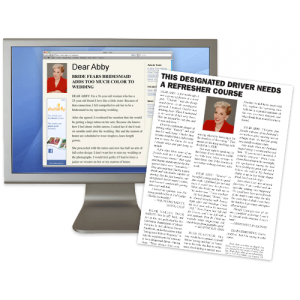Nutrition News
Browse MoreDescription
Eat Your Fruits and Veggies
By Charlyn Fargo
For those of us spending more time at home, the refrigerator may be a little too accessible, making it easier to snack a little more often.
Whether we’re working from home or not, what we put into our bodies counts. And the little steps we take — or don’t take — toward healthy eating add up to a journey.
To encourage all of us to take better steps, here’s another reason to turn to fruits and vegetables instead of another chocolate chip cookie or a handful of potato chips. With the fruits and vegetables, you’re adding good nutrients called flavonols.
A new study finds that people who eat or drink more foods with flavonols (an antioxidant found in nearly all fruits, vegetables and tea) may be less likely to develop Alzheimer’s dementia years later. The study was published in the journal Neurology.
So, along with doing that jigsaw puzzle or word search to keep your brain active, consider what you’re eating.
Dr. Thomas Holland, lead researcher at Rush University in Chicago, summarizes that eating more fruits and vegetables and drinking more tea could be an easy way for people to stave off Alzheimer’s dementia. The study involved 921 people with an average age of 81 who had not been diagnosed with Alzheimer’s. The people filled out questionnaires each year on how often they ate certain foods as well as time spent doing other activities. Participants were tested yearly for six years to see whether they had developed Alzheimer’s. Participants were divided into five groups based on how much flavonol they consumed.
The average flavonol intake among American adults is 16 to 20 milligrams per day. In the study, flavonol intake ranged from 5.3 milligrams per day to 15.3 milligrams per day.
The study found those in the highest group were 48% less likely to develop Alzheimer’s than those in the lower group.
The bottom line? While the study doesn’t prove that flavonols directly cause a reduction in disease risk, there’s an association between more fruits and vegetables and less Alzheimer’s risk. That’s enough to convince me to pass on the chips and cookies for more broccoli, Brussels sprouts and beans. And another glass of tea.
Q and A
Q: Why is drinking water so important?
A: Staying well-hydrated is important for overall well-being, including thinking clearly. If you’re working from home, keep a glass of water by you, and drink it throughout the day. Drink several cups of fluid each day, including water, tea or coffee, fruit teas and sugar-free drinks.
RECIPE
I’m always looking for a new way to serve Brussels sprouts. We’ve grilled them, roasted them and baked them. Here’s a recipe from Taste of Home to make on the stovetop.
BRUSSELS SPROUTS WITH GARLIC
1 1/2 pounds fresh Brussels sprouts
2 teaspoons olive oil
3 teaspoons butter, divided
4 garlic cloves, chopped
1/2 cup reduced-sodium chicken broth
1/4 teaspoon salt
1/8 teaspoon salt
Trim Brussels sprout stems. Using a paring knife, cut an X in the bottom of each. In a large saucepan, heat oil and 1 teaspoon butter over medium heat. Add the garlic; cook, stirring 1-2 minutes or until garlic begins to color. Immediately add Brussels sprouts, stirring to coat. Stir in broth, salt and pepper; bring to a boil. Reduce the heat; simmer, covered, 8 to 10 minutes or until Brussels sprouts are tender. Drain. Add the remaining butter; toss to coat. Serves 6 (serving size: 2/3 cup).
Per serving: 83 calories; 11 grams carbohydrates; 4 grams protein; 3 grams fat; 5 milligrams cholesterol; 4 grams fiber; 198 milligrams sodium.
Charlyn Fargo is a registered dietitian at Hy-Vee in Springfield, Illinois, and the media representative for the Illinois Academy of Nutrition and Dietetics. For comments or questions, contact her at charfarg@aol.com or follow her on Twitter @NutritionRD. To find out more about Charlyn Fargo and read features by other Creators Syndicate writers and cartoonists, visit the Creators Syndicate website at www.creators.com







Reviews
There are no reviews yet.